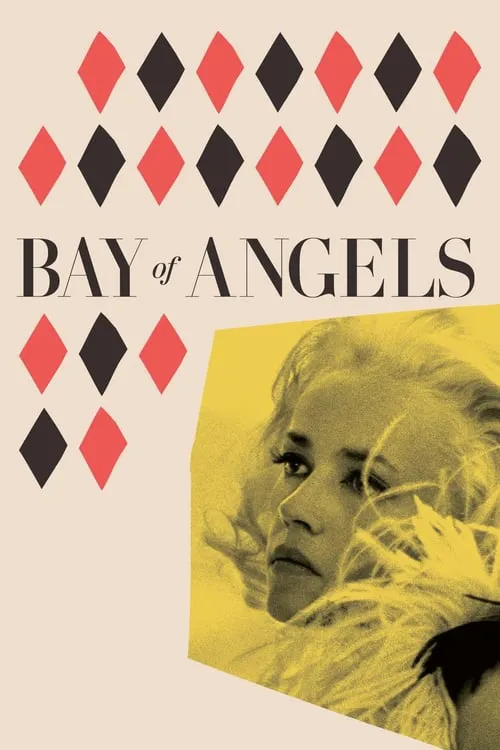Bay of Angels

Plot
The film Bay of Angels, released in 1963, is a dramatic tale written and directed by Jacques Demy. It is an intriguing and poignant portrayal of the complexities of human relationships and the darker aspects of human nature. Set in the picturesque city of Cannes, on the French Riviera, the movie delves into the lives of two individuals from different walks of life, whose paths intertwine in a series of events that expose the vulnerabilities of the middle class and the seductive allure of the world of high-stakes gaming. Our protagonist, Franck Poujo, is a bank clerk in his mid-twenties, portrayed by Claude Jade for the beginning and Claude Brasseur later on. Franck is a young man who has it all: a steady job, a stable home environment, and a conventional family life. However, beneath this façade of ordinariness lies a certain discontent – a yearning for excitement and a desire to break free from the monotony of his mundane existence. It is here that he meets Pépète, a woman whose presence sets the wheels of change in motion. Pépète, played by Jeanne Moreau, is a ravishing and enigmatic figure, with an irresistible charm that captivates those around her. She is a gambler, and a reckless one at that, with a talent for manipulating men who are drawn into her world. A complex combination of intelligence and carelessness, Pépète is a woman who lives in the moment, never really thinking about the consequences of her actions. The initial encounter between Franck and Pépète seems innocuous enough – a brief, chance meeting at a roulette table, where they engage in a conversation that sets the stage for a series of events that unfold with unpredictable consequences. As their paths continue to cross, it becomes clear that Pépète is not just a chance acquaintance but a catalyst for change in Franck's life. She introduces him to a world of high-stakes gaming and seduction, a world that is both alluring and destructive. As Franck becomes increasingly entangled in Pépète's world, his relationships with his friends and family begin to unravel. His relationships with his parents and friends become strained as he becomes more withdrawn and isolated, unable to shake off the hold that Pépète has on him. His growing obsession with Pépète also raises questions about his own identity and the nature of his desires. Pépète, on the other hand, remains an enigma, a woman whose true motivations and feelings are never fully revealed. Her actions are driven by a desire for excitement and a need to be loved, despite her flaws and recklessness. As the story progresses, it becomes clear that Pépète is trapped in her own world, a world that is marked by her inability to form meaningful connections with others. The film's use of the French Riviera as a backdrop adds to the sense of foreboding and unease that permeates the narrative. The camera captures the beauty of the location, but also the darkness and decadence that lurks beneath its surface. The vibrant colors and ornate architecture of the casino where Franck and Pépète meet serve to contrast with the bleakness of their emotional states. In the end, Bay of Angels is a tragic tale of love and despair, a film that explores the complexities of human relationships and the destructive power of obsession. Through the characters of Franck and Pépète, director Jacques Demy offers a nuanced portrayal of the human condition, highlighting the flaws and vulnerabilities that make us human. The film's use of a non-linear narrative structure adds to the sense of disorientation and disconnection that pervades the story, reflecting the turmoil and uncertainty that Franck and Pépète experience. The performances of Claude Brasseur and Jeanne Moreau are outstanding, capturing the nuances of their characters with precision and depth. Brasseur brings a sense of pathos to Franck, conveying the character's vulnerability and desperation, while Moreau embodies the mystique and allure of Pépète, making her a character that is both captivating and heartbreaking. Overall, Bay of Angels is a thought-provoking and visually stunning film that offers a nuanced exploration of the human condition. It is a film that lingers in the mind long after the credits roll, its themes and characters continuing to resonate with viewers long after the final shot has faded.
Reviews
Recommendations




